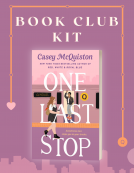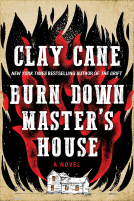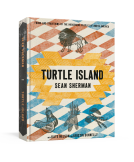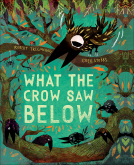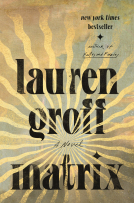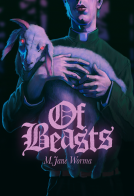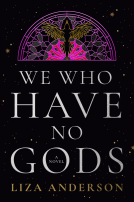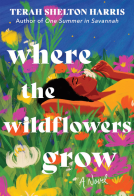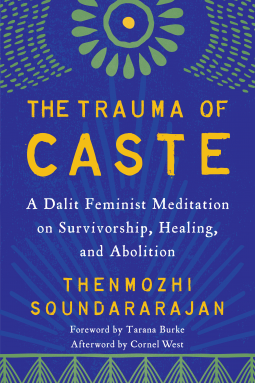
The Trauma of Caste
A Dalit Feminist Meditation on Survivorship, Healing, and Abolition
by Thenmozhi Soundararajan
This title was previously available on NetGalley and is now archived.
Send NetGalley books directly to your Kindle or Kindle app
1
To read on a Kindle or Kindle app, please add kindle@netgalley.com as an approved email address to receive files in your Amazon account. Click here for step-by-step instructions.
2
Also find your Kindle email address within your Amazon account, and enter it here.
Pub Date Nov 15 2022 | Archive Date Dec 01 2022
Talking about this book? Use #TheTraumaofCaste #NetGalley. More hashtag tips!
Description
For readers of Caste and Radical Dharma, an urgent call to action to end caste apartheid, grounded in Dalit feminist abolition and engaged Buddhism.
“Dalit” is the name that we chose for ourselves when Brahminism declared us “untouchable.” Dalit means broken. Broken by suffering. Broken by caste: the world’s oldest, longest-running dominator system...yet although “Dalit” means broken, it also means resilient.
Caste—one of the oldest systems of exclusion in the world—is thriving. Despite the ban on Untouchability 70 years ago, caste impacts 1.9 billion people in the world. Every 15 minutes, a crime is perpetrated against a Dalit person. The average age of death for Dalit women is just 39. And the wreckages of caste are replicated here in the U.S., too—erupting online with rape and death threats, showing up at work, and forcing countless Dalits to live in fear of being outed.
Dalit American activist Thenmozhi Soundararajan puts forth a call to awaken and act, not just for readers in South Asia, but all around the world. She ties Dalit oppression to fights for liberation among Black, Indigenous, Latinx, femme, and Queer communities, examining caste from a feminist, abolitionist, and Dalit Buddhist perspective--and laying bare the grief, trauma, rage, and stolen futures enacted by Brahminical social structures on the caste-oppressed.
Soundararajan’s work includes embodiment exercises, reflections, and meditations to help readers explore their own relationship to caste and marginalization—and to step into their power as healing activists and changemakers. She offers skills for cultivating wellness within dynamics of false separation, sharing how both oppressor and oppressed can heal the wounds of caste and transform collective suffering. Incisive and urgent, The Trauma of Caste is an activating beacon of healing and liberation, written by one of the world’s most needed voices in the fight to end caste apartheid.
A Note From the Publisher
Consumer reviewers: Please share where you are planning to review and include links to your Goodreads and/or relevant social media accounts.
For media inquiries or to receive a physical ARC, please contact: publicity@northatlanticbooks.com.
Advance Praise
“Thenmozhi Soundararajan is one of the most powerful, brave, visionary, and determined social justice leaders I have met in my lifetime. Her book The Trauma of Caste is an irresistible cri de coeur. It is at once an embodied meditation and simultaneously a literary hand grenade blowing open the torturous prison and agony of caste. It offers prophecy and practicality, spirit, and concrete tools for building solidarity. Thenmozhi makes clear that as genocide and ethnonationalism looms in South Asia, the stakes have never been higher. The responsibility for change cannot be on the shoulders of the oppressed. It is up to each and every one of us to rise for Dalit people now.”
—V (formerly Eve Ensler), author of The Vagina Monologues and The Apology
“Thenmozhi Soundararajan is the most profound and prophetic Dalit American voice of her generation. Her book The Trauma of Caste is a trailblazing and pathbreaking work that rips the veil of Brahmin supremacy in the South Asian diaspora within the United States as well as across the world. In the great tradition of the inimitable B.R. Ambedkar, this visionary and courageous work is a magnificent manifesto that calls for the abolition of caste apartheid. Her brilliant historical analysis is inseparable from her loving tone. In the face of hatred, she is a love warrior; and in response to trauma, she is a wounded-healer. Her eloquent language is poetic in character and revolutionary in content as she wrestles with the painful truths, overdue lies, paralyzing traumas, and liberating solidarities that can heal your bodies, fortify your souls, and immerse you in Dalit freedom struggle as a grand transformation of self and society and the world far beyond ‘wokeness.’ I urge everyone to read this book and pass it forward for these are the genocidal times that try our souls. Let the fire of resistance free all our oppressed peoples.”
—Dr. Cornel West, New York Times bestselling author of Race Matters, Democracy Matters, and Black Prophetic Fire
“From one of the most principled and inspiring social movement leaders of our time, Thenmozhi Soundararajan's The Trauma of Caste is a tour de force for caste annihilation. Thenmozhi deftly weaves through personal story, ancestral resistance, and political histories to illuminate vital truths, shatter myths, world-build transnational solidarities, and uplift courage and love through this embodied text. At this time of mounting structural violence, Thenmozhi rightfully points out the roots of growing fascism and genocide in South Asia, especially India, lie in virulent structures like Brahiminism. This book is unsparing in its indictment of dominant caste people, including those progressives in the diaspora selectively challenging racism but upholding caste apartheid, while also brimming with tender love for Dalit feminists envisioning ‘a Dalit feminist multiverse where we are embodied, limitless, and surrounded by love.’ This work is intellectually fierce, profoundly necessary, and a compelling must-read for us all.”
—Harsha Walia, author of Undoing Border Imperialism, co-author of Never Home, and current executive director of British Columbia Civil Liberties Association (BCCLA)
“The Trauma of Caste is a worthy successor to Dr. Ambedkar in its visionary analysis and epic sweep. Generations after independence, India has not only failed to annihilate caste, but entrenched it and spread it to the diaspora. With profound compassion and brilliant insight, Thenmozhi Soundararajan shows us the damning truths of caste in our time and lights a path forward. Her accessible writing style and fact-based inquiry into the forces behind the recurring headlines of individual ‘atrocities’ make this book required reading for South Asian organizers and academics, for anyone who works with South Asian people globally, and for all humans who care about equity and justice.”
—Minal Hajratwala, author of Leaving India, editor of Out! Stories from the New Queer India, Stanford/Columbia/Fulbright-Nehru Senior Scholar, and founder of the Unicorn Authors Club
“Thenmozhi Soundararajan’s The Trauma of Caste is a clear-eyed exploration of the roots of caste apartheid, and the intergenerational resistance against it. The book is a clairvoyant call for global caste annihilation, as well as for building up egalitarian alternatives. Thenmozhi leads us on an intimate and purposeful journey into historical harms, as well as the everyday violences of brahmanist patriarchy upon the bodies and lives of Dalit and oppressed-caste communities. The book offers a call for people from each and every caste background across the South Asian diaspora to find their own ways to debrahminize our culture and politics. It is also a loving invitation to join in practices of healing, from a legacy of trauma and the intersecting injustices that impact a diversity of survivors. Thenmozhi has long proved herself as a true movement organizer. In a direct response to Dr. Ambedkar’s call to ‘Educate, Agitate, and Organize’—she leads us through both practical and visionary strategies to take responsibility and do our part to abolish caste at both interpersonal and systemic levels, helping make a path towards liberatory futures.”
—Prachi Patankar, activist, funder, and Caste Oppressed Leader of
“Thenmozhi Soundararajan’s The Trauma of Caste reminds us that meaningful change always begins with love. Over the years, her inspiring movement leadership has modeled principled, loving, and empathetic disruption of the systems of exclusions that haunt all of our communities. Her book crosses centuries, borders, bodies, hearts, and minds to expose the Caste divides that have fractured South Asians. Caste plays an outsized role in our global context, yet it remains overlooked and misunderstood. It is one of the urgent moral, multifaith issues of our time and The Trauma of Caste is a critical intervention, helping us to better understand how caste operates, what it feels like, and most importantly, why we must work to abolish it, once and for all.”
—Simran Jeet Singh, executive director for the Aspen Institute’s Religion & Society Program and author of The Light We Give
“The Trauma of Caste is a powerful reintroduction to Buddhism as a response to the unjust suffering of Caste. Thenmozhi draws on her own lived experience and insights from the study of anti-caste activism over millennia to illuminate the struggle for justice, freedom, and caste-abolition against the interlocking systems of oppression faced by those at the bottom of body-based hierarchies: among the South Asian diaspora, the African diaspora, and beyond. For many Black Buddhists, it is moving evidence that mindfulness practices developed to address racism in the US have become crucial platforms for black-brown internationalism, as oppressed people like Dalits are using these to address their own soul wounds and intergenerational trauma. The Trauma of Caste is an instant socially-engaged Buddhist classic and is crucial reading for all who are committed to Sanghas rooted in liberation in all beings.”
—Rhonda V. Magee, author of The Inner Work of Racial Justice
“The Trauma of Caste is an instant classic of Dalit feminism and caste abolition. Thenmozhi Soundararajan’s powerful words relay the pain and the sadness of Dalits around the world while also creating space for our grief, courage, love, and meditation. She captures with precision the experience of being a survivor of spiritual violence, and how religion, which has been a tool for the oppression of Dalits, can be a foundation for our freedom when we are awarded consent and acknowledgment of our caste soul wound. As a Dalit feminist, I was encouraged by her fiery challenge to Brahminical Patriarchy and how it has spread beyond South Asia to the diaspora. As caste has become transnational it could be more complicated and challenging to defeat, but Thenmozhi has helped to open new strategies, tactics, and solidarities across caste, race, and gender lines at a time when we need it the most. I am very proud of her both as a dear friend, but also as a Dalit Feminist. Her work creates new possibilities in the darkest moment of our history and I urge all who care about the future of our world to read it now.”
—Manjula Pradeep, Dalit feminist leader and cofounder of the National Council of Women Leaders and the Dalit Human Rights Defenders Network
“In The Trauma of Caste, Thenmozhi Soundararajan provides a historical context and contemporary framework for difficult yet courageous conversations around caste apartheid and why we must work to disrupt and end it. Thenmozhi’s call for action isn’t solely theoretical and political. Hers is a meditation that asks us to be aware of our mind-body-heart connection as we are called to the fire. We must bring upekkhā (equanimity), accountability, mettā (loving-kindness), healing, karuna (compassion), accountability, more mettā (loving-kindness) and healing to the fires of injustice. We risk being eaten alive and transforming into the very entities we seek to eradicate if we don’t.”
—Aishah Shahidah Simmons, producer/direct of NO! The Rape Documentary and editor of Love WITH Accountability
“The Trauma of Caste is an unapologetic and tender examination of the wounds inflicted by caste-based discrimination. When caste or racial wounds are unattended, they can lead to intergenerational trauma and cycles of repetitive harm that in the worst cases can lead to genocide. In the face of the overwhelming pain and stress inflicted upon caste-oppressed people, Thenmozhi calls readers to participate in a fully embodied transnational love, making radical and empathetic connections with other oppressed communities. She roots her call to action in concrete sustainable steps, with insightful worksheets and exercises inspired by her own work that is transnational yet deeply personal—sparked by songs, stories, and solidarity building. As a Dalit, I welcome this work that further paves the way for all of our collective healing from caste.”
—Dr. Sunder John Boopalan, assistant professor at Canadian Mennonite University and author of Memory, Grief, and Agency
“The Trauma of Caste offers a bold and beautifully written insight on the violence of oppressive caste systems and recasts abolition, and the modern global fight for human rights, as the ground from which new visions for a more just world will grow. Soundararajan’s debut book is part memoir, part essay and all brilliant in that it places the experiences of Dalit people firmly at the center of a global story about race and caste they have long been excluded from, and uses that experience to teach us all about power, about survival, about changemaking. It is unflinching in its analysis of the wounds of caste, and the wages of caste grief, but hopeful in its call for healing even at the point of genocide. Every Black activist should read this book, every immigrant rights activist should read this book, every survivor of violence should read this book—because it holds within it seeds for our collective future.”
—Malkia Devich Cyril, founding director of MediaJustice and principal at the Radical Loss Project
“The Trauma of Caste deconstructs caste oppression and considers possibilities for healing, through a Dalit-American feminist lens, in conversation with the writings not only of Dalit thinkers but of those from Black, Indigenous, and other historically exploited communities. At a time when the issue of caste is gaining more attention outside of South Asia, this book is an important addition to contemporary Dalit literature. As a Dalit American, I am inspired by Soundararajan’s important efforts to raise awareness about caste and bring about healing. I admired and learned a lot from this book’s consideration of the past, present, and future of caste.”
—Vauhini Vara, journalist and author of Immortal King Rao
“This deeply spiritually grounded meditation on the trauma and afterlives of caste apartheid deserves our global intersectional feminist solidarity. Thenmozhi Soundararajan shows us in this book that the work of freedom must happen not only in the head and the heart, but also in the body. She has me convinced that the work of eliminating caste, a dominating system that predates white supremacy, will help to free us all."
—Brittney Cooper, author Eloquent Rage and Beyond Respectability
“Thenmozhi Soundararajan is one the first Dalit Americans to have examined the history of caste and its traumatic journey to the United States. Caste has crossed seas and mountains in airplanes, trains, and ships, for wherever South Asians are, they have brought this terrible system. We have seen Brahminism take root in the US fueled by financial interests that have led America to be fertile ground for the sin of caste. As Thenmozhi shares this painful history, she also spotlights the work of the caste-oppressed civil rights movements and the many leaders who are the engine of this movement. In her stories there is much to learn not only about caste in the United States, but the trauma caste engenders for all of us. As a Shudra sufferer of caste in India, I urge everyone to read this book. It is essential reading for all those committed to dignity, human rights, and a caste-free world.”
—Kancha Ilaiah Shepherd, author of The Shudras, From a Shepherd Boy to an Intellectual, and Why I Am Not a Hindu
“Amidst the aggressive march of bigotry and violence in South Asia and elsewhere in the world, Thenmozhi Soundararajan’s book The Trauma of Caste makes a powerful case for healing and action. Soundararajan deftly constructs the narrative through her own experiences, the history of Dalit activism, while also creating space for the poignant despair and fierce resilience of Dalit people worldwide. It also creates much-needed space for dominant caste people to confront their privilege and reflect on the violence of caste not just to the caste-oppressed but to our own humanity. Her Dalit feminist vision is incisive in its analysis but compassionate in its practical ways to heal the trauma of the caste soul wound. Searing, powerful, and haunting, this book is a must-read for all of us who are committed to a world grounded in human rights and caste and gender equity. The book is a clarion call for revolution, and I would urge all to heed its call.”
—Govind Acharya, India Country Specialist, Amnesty International USA
Marketing Plan
Early ARC outreach
Outreach to top-tier print and online media
National review campaign
National feature campaign
Virtual book tour and author speaking engagements
Podcast/radio outreach
Targeted outreach to Buddhist media
Targeted outreach to POC media
High marketing budget; priority title
Consumer-facing advertising
Goodreads giveaway
Instagram campaign
Influencer outreach
Giveaways
Trade advertising
Google Ads
Video and multimedia campaign
Available Editions
| EDITION | Other Format |
| ISBN | 9781623177652 |
| PRICE | $18.95 (USD) |
| PAGES | 256 |
Average rating from 17 members
Readers who liked this book also liked:
We Are Bookish
Mystery & Thrillers, OwnVoices, Teens & YA
Sean Sherman; Kate Nelson; Kristin Donnelly
Cooking, Food & Wine, History, Multicultural Interest
L.M Montgomery
Children's Fiction, Comics, Graphic Novels, Manga, Teens & YA
Terah Shelton Harris
General Fiction (Adult), Multicultural Interest, Women's Fiction


